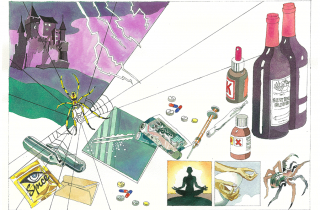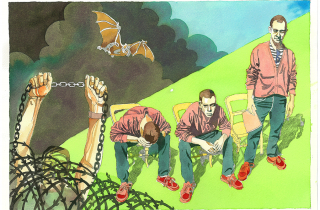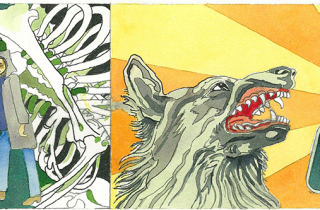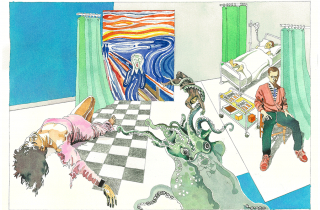This is what we have all been doing. Our addicted child doesn’t exist in a vacuum. We have somehow not only allowed her to use drugs in our house, but we have actively enabled our daughter to buy the drugs do that.
How have we enabled our child?
We’ve given her money. We have looked the other way when she used drugs in our house or came home drunk or high. We have rescued her from her problems instead of letting her face the consequences of her actions. We have participated in her dramas.
Why did we do this?
I guess because first of all, the seriousness of our child’s drug use crept up on us so gradually. And secondly, we had no road map for how to handle the problem that faced us.
In my case, I thought that I was being a liberal parent. When I was a student, back in the day, smoking a cannabis joint actually wasn’t a big deal. It was possible for my generation to experiment while we were young and then leave it all behind. The drug was mild by comparison with today’s Skunk. So what has happened to many parents of our generation, is that the rules of the game changed – and nobody told us. Skunk is easily scored on the streets and novel psychoactive substances (formerly known as ‘legal highs’) are available on the internet if you know where to look. The damage these drugs do is untold. They wreck young people’s mental health, and wreck lives and destroy families.
It creeps up so gradually, right? We think that our child is experimenting as teenagers do, and that it’s just a phase. The signs that our daughter is slipping into Addiction are so minute, so subtle, that we don’t pick up on them until her drug habit is firmly established. And then we’re in trouble.
We’re in trouble because we don’t want to admit to ourselves that something is deeply wrong. This is called Denial. We are so busy presenting ourselves and our families to the outside world as successful, happy and generally OK, that we believe our own propaganda. After all – the alternative would be to admit to ourselves that we messed up. Who wants to do that?
And so we sleepwalk into worsening our daughter’s Addiction by giving her money. We participate in the whole web of lies – “Mum, I had money stolen from me at Glastonbury. Can you lend me £50?” We lend her the money because that stops the feeling of discomfort that will ensue if we say ‘No’. It avoids an argument when we are already very busy or stressed and thus we avoid short-term pain.
The price of avoiding short-term pain? We are storing up long-term pain. That’s what Enabling does.







